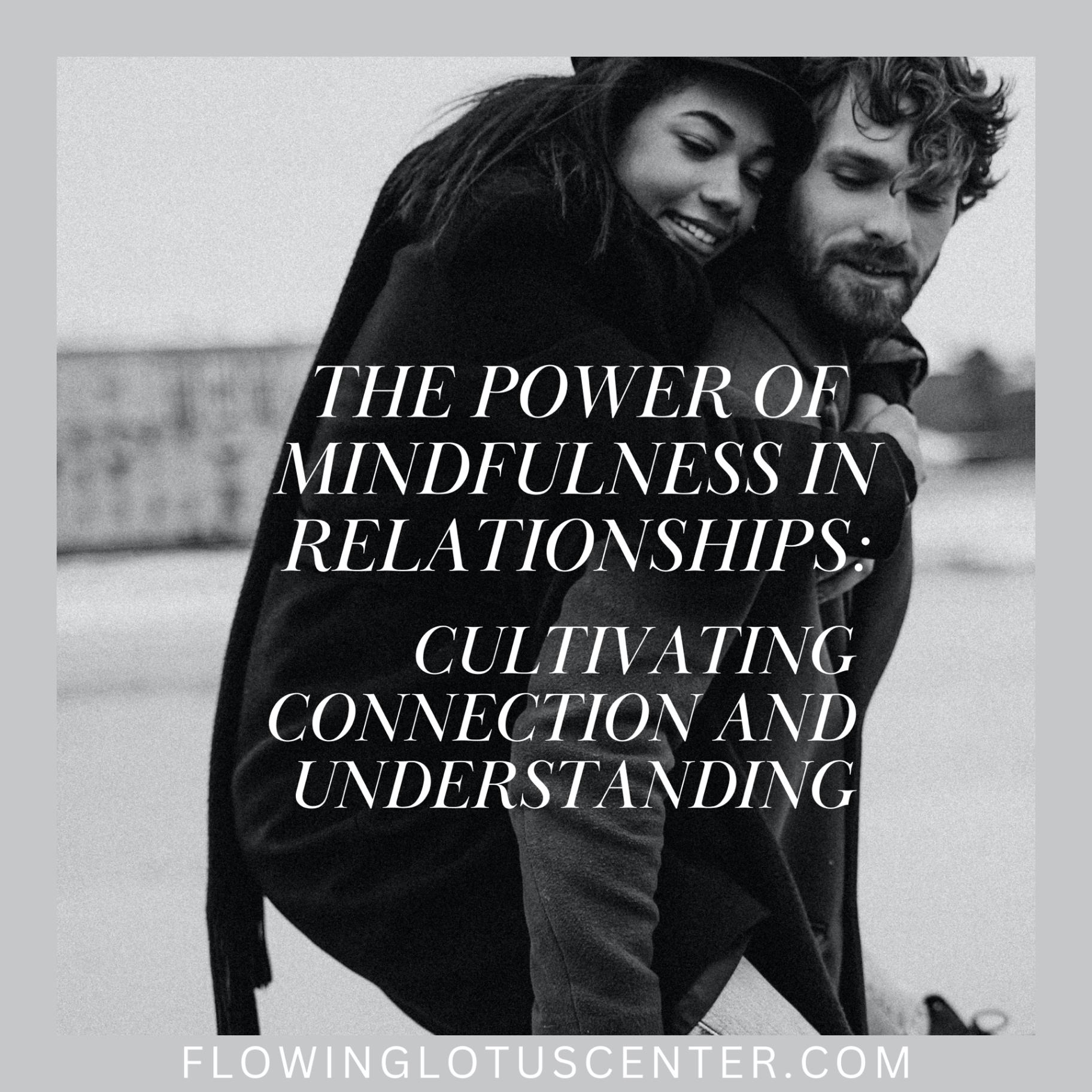The Power of Mindfulness in Relationships: Cultivating Connection and Understanding

In a world that often seems to move at a breakneck pace, where distractions abound and stress levels soar, the concept of mindfulness has emerged as a beacon of hope for many seeking a greater sense of peace and fulfillment. But mindfulness is not just about finding tranquility within oneself; it also holds immense significance in the realm of relationships. In this blog post, we’ll explore what mindfulness means and why it matters in cultivating healthy, meaningful connections with others.
Understanding Mindfulness:
At its core, mindfulness is the practice of being present in the moment with non-judgmental awareness. It involves paying attention to thoughts, feelings, bodily sensations, and the surrounding environment without getting caught up in them. Mindfulness encourages acceptance of whatever arises, whether it’s joy, sorrow, frustration, or contentment, without trying to change or suppress it.
Why Mindfulness Matters in Relationships:
Improved Communication: Mindfulness fosters effective communication by encouraging individuals to listen attentively and respond thoughtfully rather than react impulsively. When we’re fully present with our partners, we’re better able to understand their perspectives, validate their feelings, and express ourselves clearly and empathetically.
Enhanced Emotional Connection: By practicing mindfulness, individuals can deepen their emotional connection with their partners. Being fully present and attuned to each other’s needs and emotions strengthens the bond between partners, leading to greater intimacy and trust.
Conflict Resolution: Mindfulness equips individuals with the tools to navigate conflicts with greater ease and compassion. Instead of escalating arguments or shutting down emotionally, mindful individuals approach disagreements with openness and curiosity, seeking understanding and resolution rather than victory.
Reduced Stress and Anxiety: Mindfulness practices, such as meditation and deep breathing, have been shown to reduce stress and anxiety levels. When individuals are less stressed, they’re better able to engage authentically in their relationships, fostering a more harmonious and supportive environment.
Cultivation of Empathy and Compassion: Mindfulness cultivates empathy and compassion by encouraging individuals to cultivate a non-judgmental attitude towards themselves and others. This compassionate perspective fosters understanding and acceptance, even in the face of differences or challenges within the relationship.
Practical Tips for Cultivating Mindfulness in Relationships:
Practice Active Listening: Give your partner your full attention when they’re speaking, without interrupting or formulating your response in your mind.
Engage in Mindful Communication: Before reacting impulsively, take a moment to pause, breathe, and consider your words and actions mindfully.
Schedule Regular Check-ins: Set aside dedicated time to connect with your partner, whether it’s a daily check-in or a weekly date night, to nurture your relationship intentionally.
Mindful Touch: Engage in physical touch mindfully, whether it’s holding hands, hugging, or cuddling, to deepen your emotional connection with your partner.
Practice Gratitude: Cultivate an attitude of gratitude towards your partner by regularly expressing appreciation for their presence, support, and contributions to the relationship.
In conclusion, mindfulness is a powerful tool for cultivating healthy, fulfilling relationships. By practicing mindfulness in our interactions with our partners, we can enhance communication, deepen emotional connection, navigate conflicts with grace, and foster empathy and compassion. By incorporating mindfulness into our daily lives, we can create relationships that are grounded in presence, understanding, and love.

